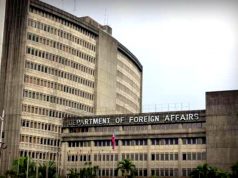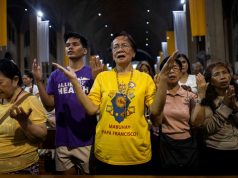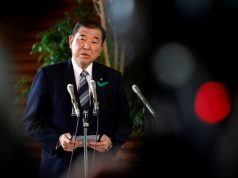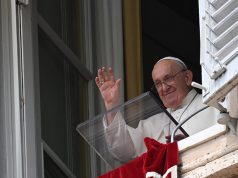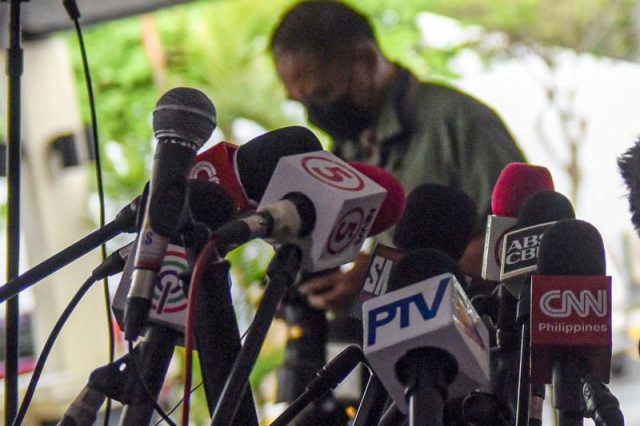
Incoming Presidential Communications secretary Trixie Cruz-Angeles said that vloggers and bloggers with high social media engagements and number of followers will be more preferred for accreditation to cover Malacañang briefings.
Angeles, a lawyer-vlogger, said that focus of the incoming Marcos Jr. administration’s communication bureau is to review the policy created by the Duterte administration on bloggers and vloggers.
She admitted, however, that they are unsure “if now is the right time to include them” alongside accredited journalists from news outlets.
“We are reviewing if the current policy is correct. If [it would be] right to include them in press briefings, how often, what are the qualifications and so on,” she was quoted on DZMM TeleRadyo.
“Under the old policy kasi, there’s a 20,000 followers na limit na kailangan malagpasan po nila in order to be considered,” Cruz-Angeles added.
“Right now, tinitingnan din po namin ‘yung engagements, kasi engagements really means that people are responding to what you have written or shown, in the case of vloggers, at interesado o sila o nai-involve sila doon sa sinasabi,” she further said.
“So ngayon, ang kino-consider namin both following and engagements kasi makaiba po ‘yun,” the lawyer-vlogger continued.
Social media engagements refer to the number and frequency of comments, likes and shares on content. It shows how people are interacting with the posted content.
The number of followers, meanwhile, refers to accounts that are subscribed to a page or channel.
Despite this, Cruz-Angeles stressed that they are deciding whether or not to allow vloggers to attend regular Palace briefings.
Vloggers played a huge role in Marcos Jr’s presidential campaign. Some are given greater access to him than news reporters during sorties.
ALSO READ: Doc Adam jokes he could be among vloggers accredited by incoming PCOO
What about ethics?
Critics of Cruz-Angeles’ comments reminded her that ethics play a more important role in reportage than social media metrics.
“It’s not just popularity. Should be responsible writing,” a Twitter user commented.
“So popularity contest, hindi veracity of reporting? Walang standard of ethics and fact-checking?” another online user wrote.
“How about knowledge, training, professionalism? Then decency, honesty, accountability,” commented a different user.
Journalists have a code of ethics or a set of professional values and moral principles that they are expected to adhere to.
The Philippine Press Institute gives an idea of what it is on its website. It reads:
- I shall scrupulously report and interpret the news, taking care not to suppress essential facts nor to distort the truth by omission or improper emphasis. I recognize the duty to air the other side and the duty to correct substantive errors promptly.
- I shall not violate confidential information on material given me in the exercise of my calling.
- I shall resort only to fair and honest methods in my effort to obtain news, photographs and/or documents, and shall properly identify myself as a representative of the press when obtaining any personal interview intended for publication.
- I shall refrain from writing reports which will adversely affect a private reputation unless the public interests justifies it. At the same time, I shall write vigorously for public access to information, as provided for in the constitution.
- I shall not let personal motives or interests influence me in the performance of my duties; nor shall I accept or offer any present, gift or other consideration of a nature which may cast doubt on my professional integrity.
- I shall not commit any act of plagiarism.
- I shall not in any manner ridicule, cast aspersions on or degrade any person by reason of sex, creed, religious belief, political conviction, cultural and ethnic origin.
- I shall presume persons accused of crime of being innocent until proven otherwise. I shall exercise caution in publishing names of minors, and women involved in criminal cases so that they may not unjustly lose their standing in society.
- I shall not take unfair advantage of a fellow journalist.
- I shall accept only such tasks as are compatible with the integrity and dignity of my profession, invoking the “conscience clause” when duties imposed on me conflict with the voice of my conscience.
- I shall comport myself in public or while performing my duties as journalist in such manner as to maintain the dignity of my profession. When in doubt, decency should be my watchword.
The code was approved by the Philippine Press Institute, the National Union of Journalists in the Philippines and the National Press Club in 1988.






